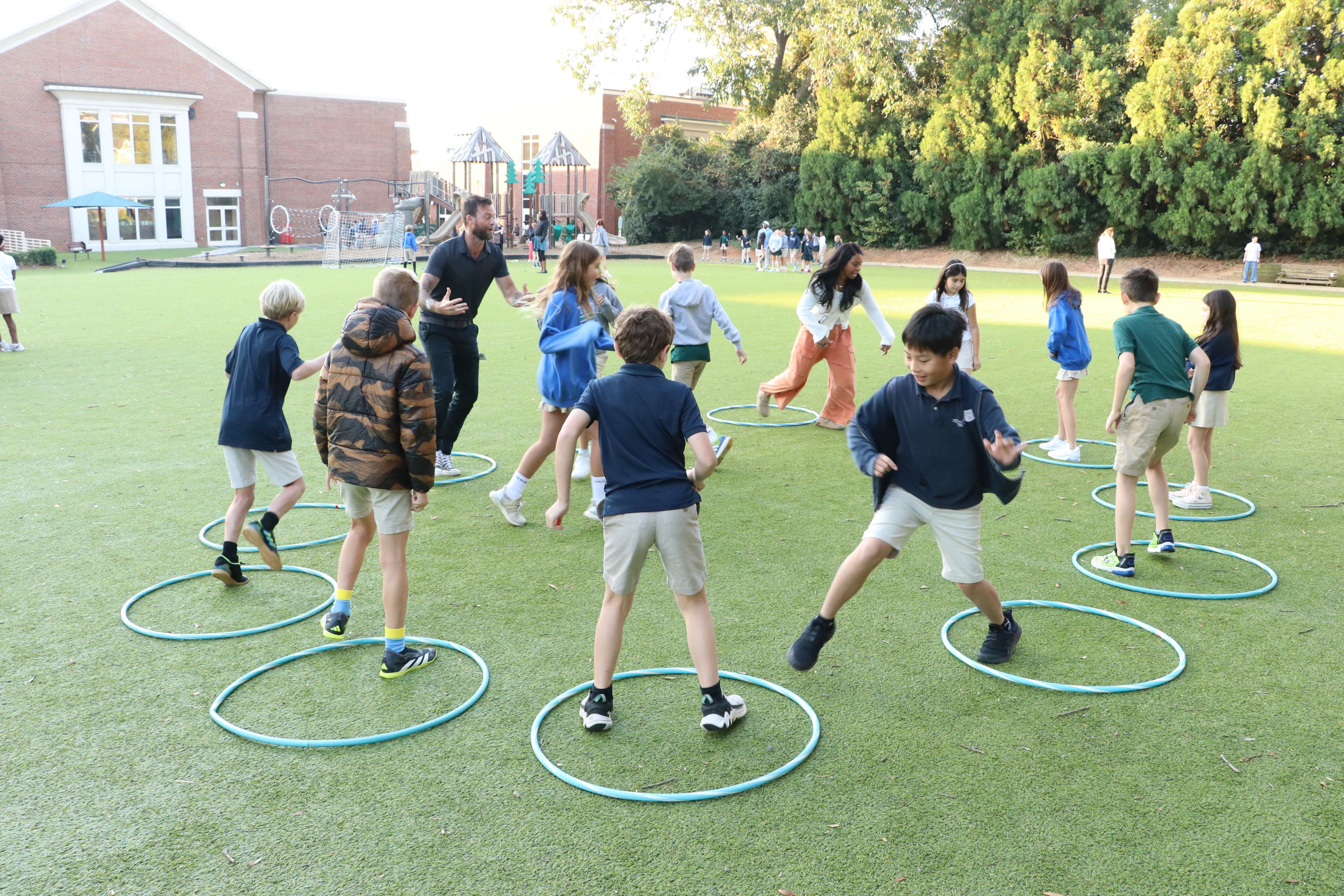Faith Studies
Faith Studies classes, an integral part of Trinity’s overall curriculum, ask our students to be reflective servants, thoughtful stewards, and critical thinkers.
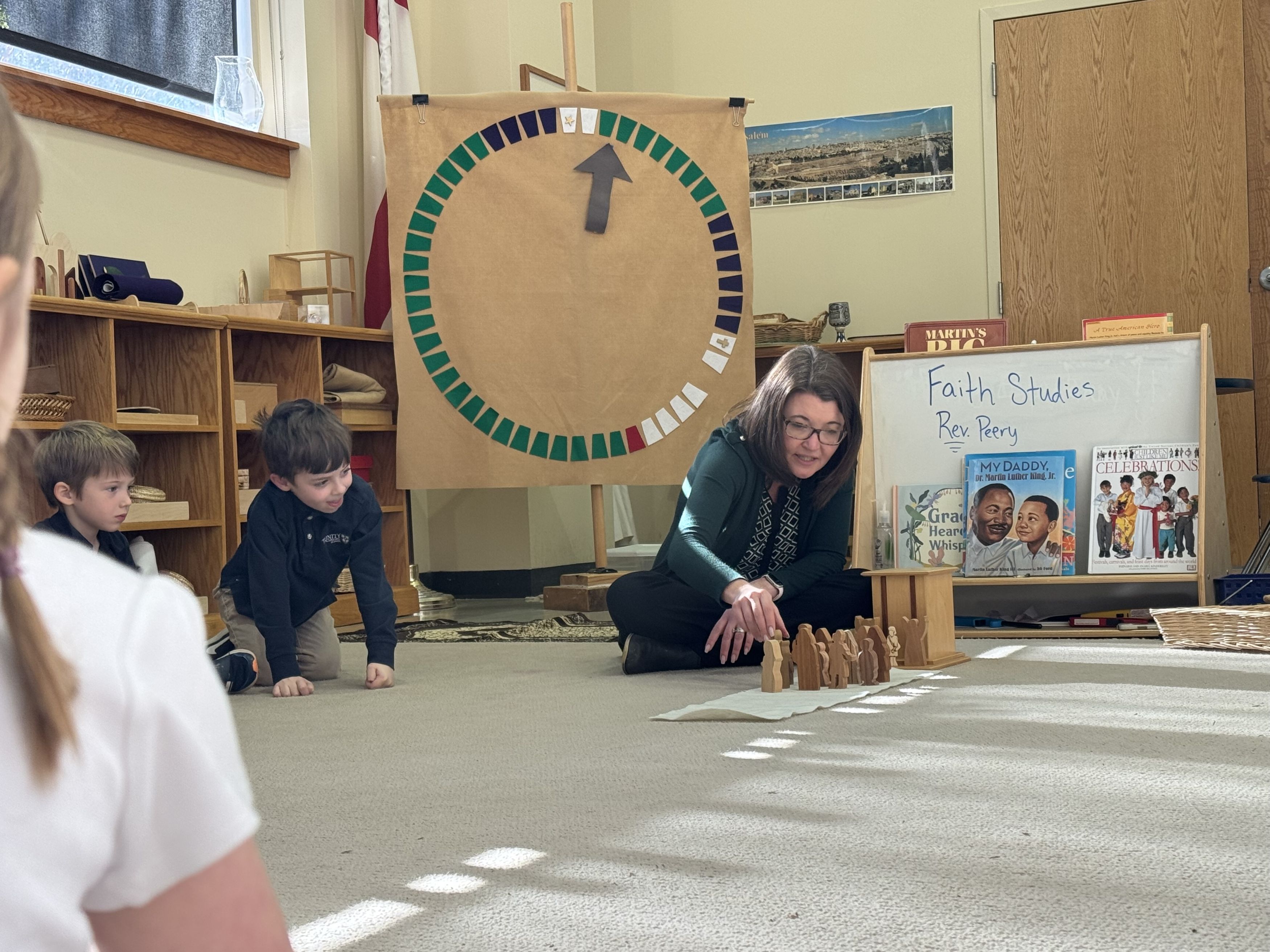
All Lower School Faith Studies classes hear and discuss the stories of the Bible and students make connections to their own stories, as well as stories from other faith traditions. This complements and reflects our belief that all of life has a spiritual dimension. During Faith Studies, there is also time for connections and reflections on service learning, as well as discussions about embracing diversity in our community and world.
Faith Studies Essential Questions:
1. What are the stories of our faith?
2. How do we integrate faith stories with our own stories?
3. Who are our neighbors and what are we called to do?
4. How do we process mystery and ambiguity?
Spanish
All students are introduced to Spanish as an enrichment class in grades K-5, with an emphasis on language and culture via the Descubre el Español curriculum. Students learn Spanish through the five Cs from the National World Language Standards: Communication, Cultures, Connections, Comparisons, and Communities.
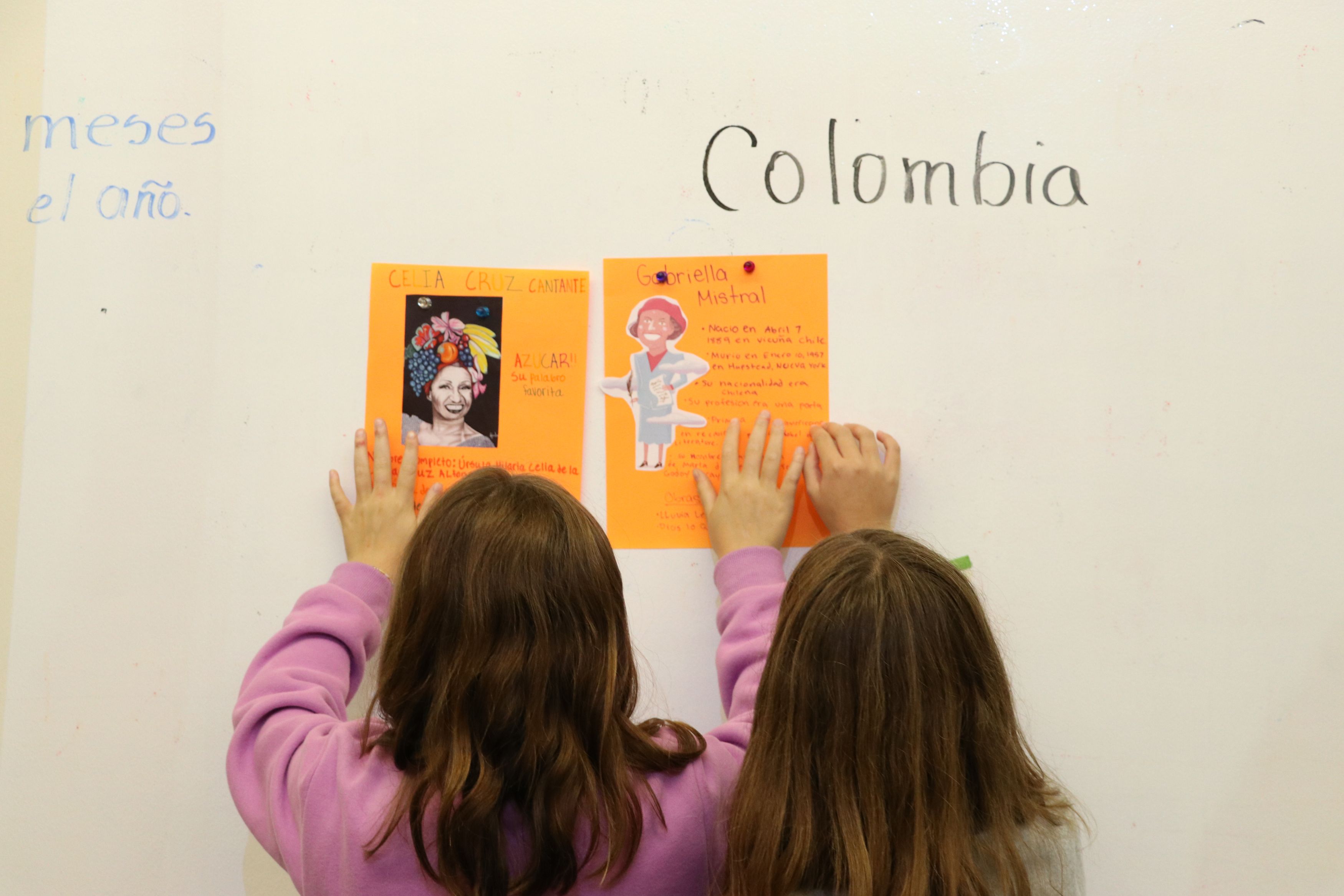
They explore not only the language, but also the culture of 20 Spanish-speaking countries. The focus is on developing listening, comprehension, and beginning conversational skills through sounds, poems, songs, stories, total physical response, music, art, and games. For heritage speakers, the program also provides the Anthologia, which includes leveled literary and informational texts that develop reading comprehension, vocabulary, spelling, and writing activities. Students in grades 4-5 access this program at school and at home using student books and an eLearning center.
Performing Arts and Music Education
Trinity’s performing arts program reflects our commitment to a well-rounded liberal arts education with a focus on each student’s creative expression. All students take general music, which emphasizes creativity, music appreciation, musical literacy, and performance preparation. Each grade level in Lower School features a dramatic or musical performance, such as Fairy Tale Plays in First Grade and Shakespeare in Fifth Grade.
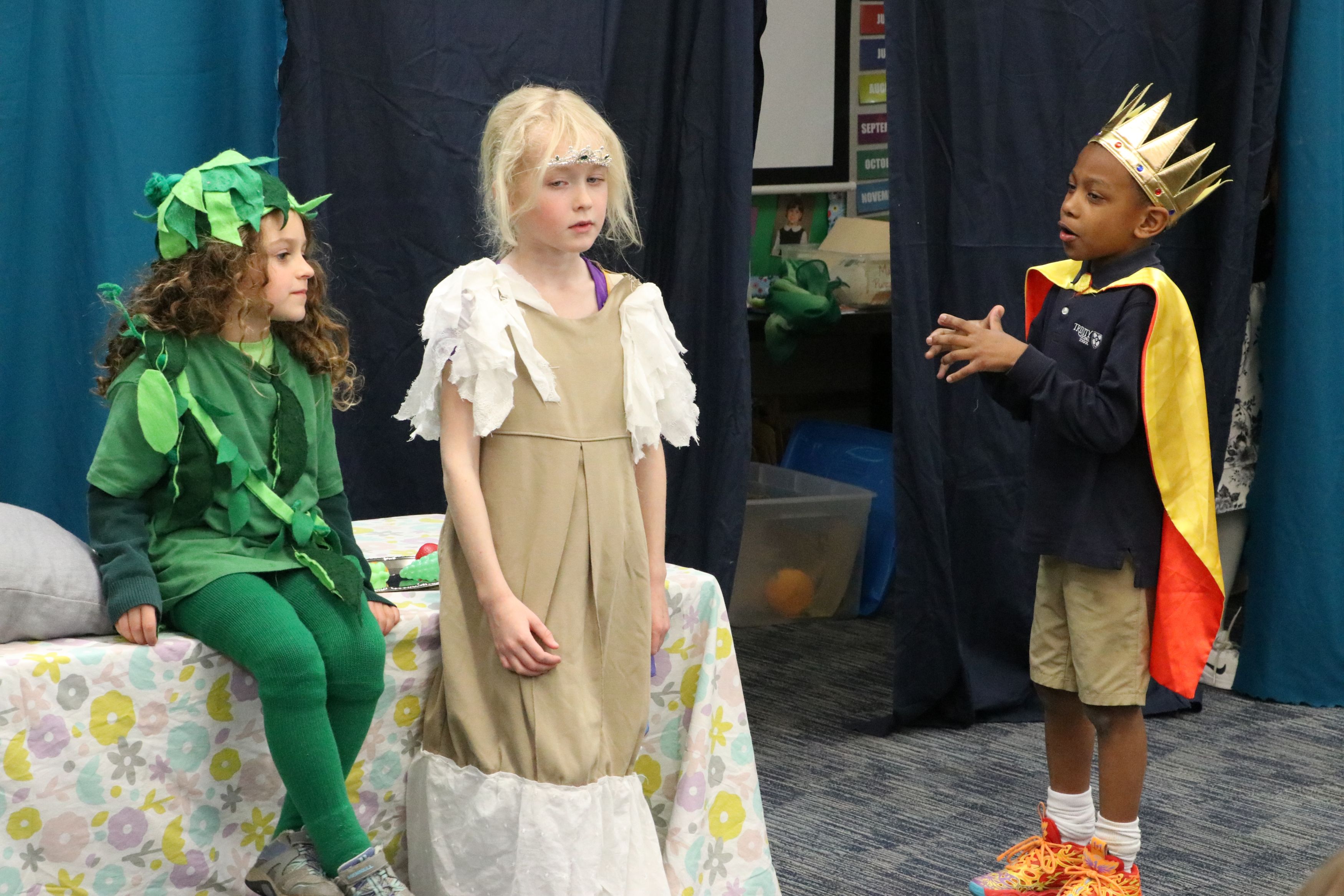
The music program provides many opportunities for individual growth and fosters every child’s innate love of music. K-4 students participate in general music classes. Beginning in 5th Grade, students may choose from one of two ensembles: chorus or band. Ensembles perform at chapels, commencement, and venues outside of school.
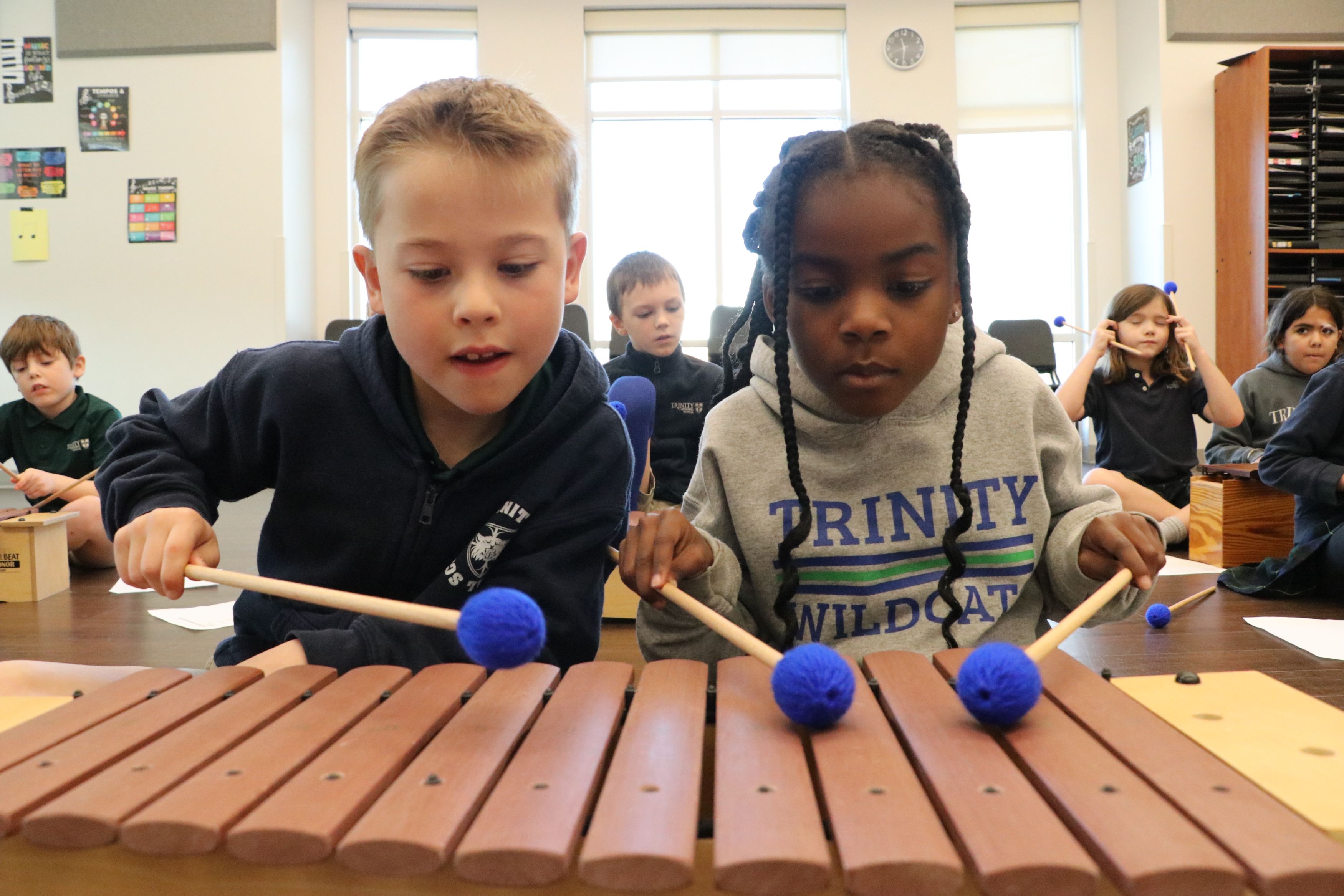
Visual Arts
Trinity’s art curriculum follows the pedagogy of Teaching Artistic Behaviors (TAB), a methodology that is student-focused, choice-based, and teacher-facilitated. The learning environment is designed to provide centers or mini-art studios complete with instructional information, menus, resources, materials, and tools. Students move independently between centers, utilizing materials, tools and resources as needed in their art-making, such as painting, clay, or printmaking.
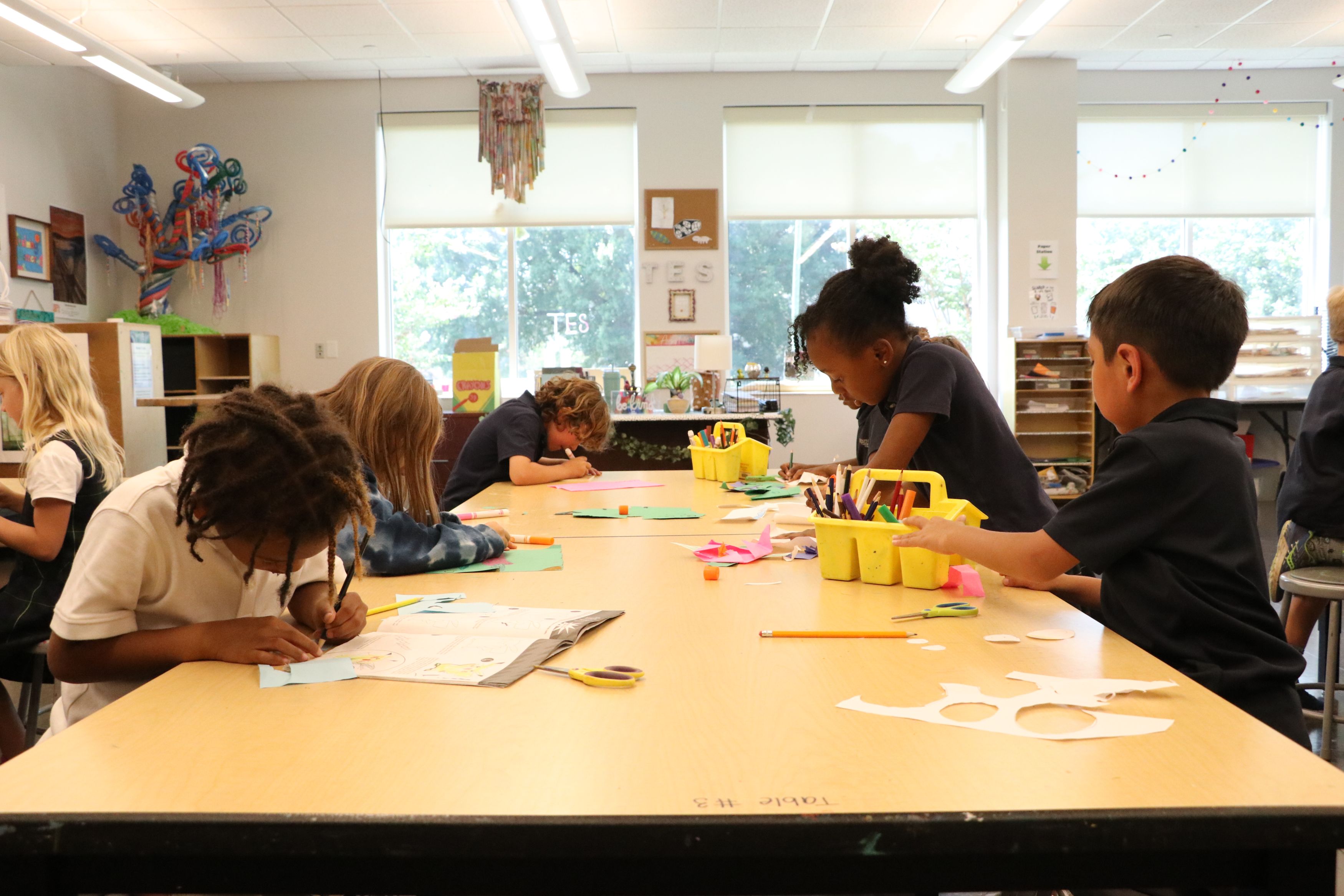
Centers are arranged to provide students with independent learning opportunities. We value the process of art as children as well as students as artists. It is the responsibility of the art teacher to guide students through the art curriculum in an engaging and thought-provoking way.
Edmund Feldman states, “...art is a universally human act,” so its importance is held in high regard. Nowhere is this more apparent than in the art room at Trinity Episcopal School where students are given the opportunity to learn while engaged in the process of creating something new. Although the product is usually fantastic the process-based learning is where the beauty is!
Physical Education and Wellness
All students should have the opportunity to discover and enjoy lifelong activities and sports. The connection between a healthy body, mind, and soul is ever-present in the weekly programs, which include cooperative games, skill development, sportsmanship, and making healthy decisions.
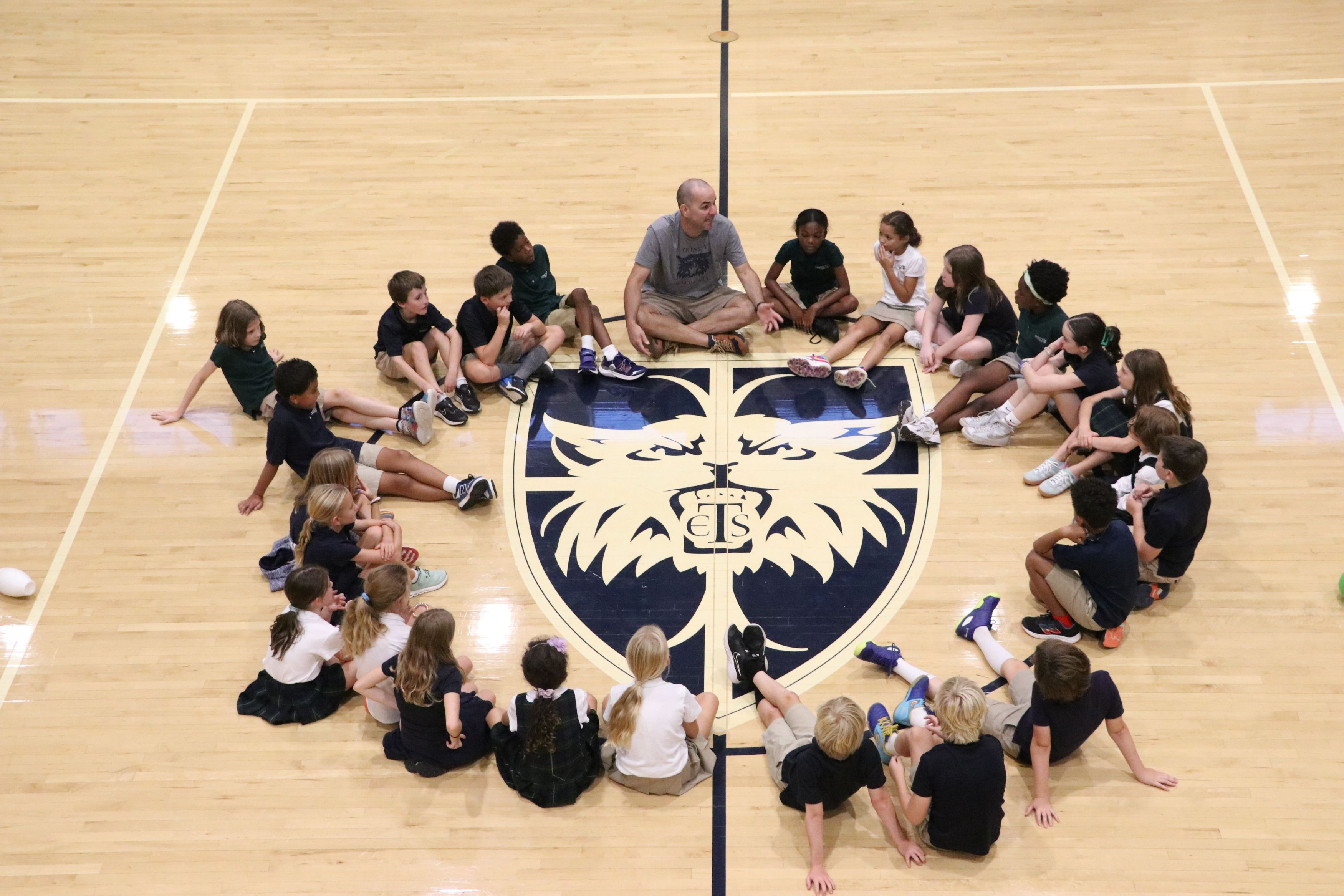
In the last trimester of 5th Grade, students split into gender-based small groups for the RISE program to develop personal leadership skills that build confidence for the transition to Middle School.
Wellness classes teach subjects regarding how to keep our minds and bodies healthy and safe. This includes topics around emotional regulation, conflict resolution, self-esteem, nutrition, and personal boundaries.
12 Tribes of Trinity
Based on the Biblical 12 Tribes of Israel, Trinity Tribes are co-ed groups of students in grades 3-5 that provide the opportunity for students from different grade levels to get to know one another, engage in meaningful activities together, and build relationships. Each Tribe is led by 2 adult staculty members.
